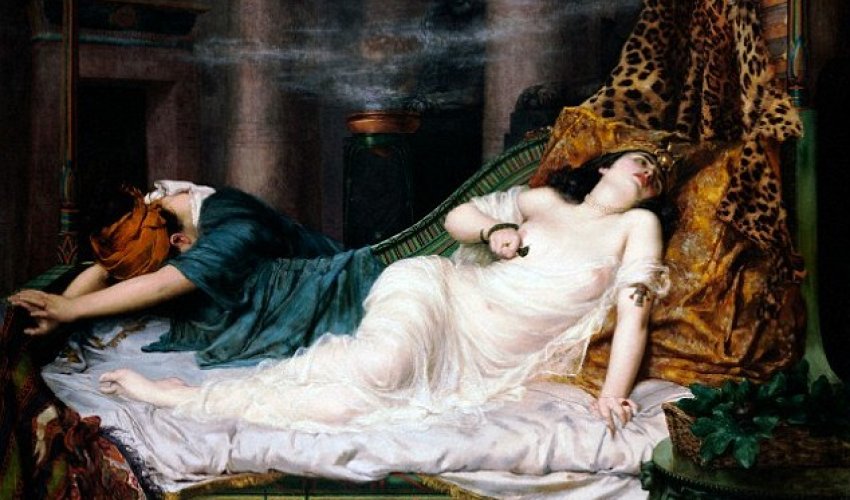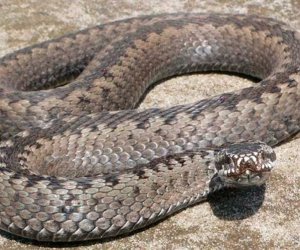Cleopatra probably WASN'T killed by a snake bite

It’s long been thought that the ancient Egyptian queen Cleopatra was killed by a snake bite.
Ancient accounts tell of a snake that was hidden inside a basket of figs brought in from the countryside and was used by the queen to commit suicide on August 12, 30 BC, as well as killing two of her servants.
But academics have dismissed the popular view, saying venomous snakes in Egypt, such as cobras and vipers, would have been too large to sneak unseen into the palace.
Andrew Gray, curator of Herpetology at Manchester Museum, believes cobras, which can grow up to eight feet (2.4 metres) long, were too big to have been hidden easily.
And even if the Egyptian cobra was slightly smaller, it would still have been hard to hide.
The snake would have had too little time to kill two or three people without being detected, he explained.
‘Not only are Cobras too big, but there’s just a 10 per cent chance you would die from a snake bite- most bites are dry bites that don’t inject venom.
‘That’s not to say they aren’t dangerous: the venom causes necrosis and will certainly kill you, but quite slowly.
‘So it would be impossible to use a snake to kill two or three people one after the other.
‘Snakes use venom to protect themselves and for hunting – so they conserve their venom and use it in times of need.’
He spoke to the Egyptologist Dr Joyce Tyldesley of Manchester University in a new video that is part of a new online course introducing ancient Egyptian history, using six items from the Museum’s collection.
She acknowledged there are many theories about how the queen died, such as being poisoned by the Roman Emperor Octavian.
Dr Tyldesley told MailOnline that a criminal profiler named Pat Brown believed suicide was not in Cleopatra's character, and that she may have been murdered by Octavian, who ruled the Roman Empire from 27 BC to 14AD.
However, Dr Tyldesley said: 'I think that she did commit suicide.
'We know very little about suicide in ancient Egypt - it is almost as if it was unheard of - but suicide in the Hellenistic or Roman world was seen as a totally acceptable means of dealing with an otherwise insoluble problem. And Cleopatra belongs to that world.
'Mark Antony [Cleopatra's lover] stabbed himself, and there are reports that Cleopatra had already attempted to stab herself, so maybe a knife or dagger wound of some kind - opening the veins in a bath, perhaps - was the easy solution.
'Alternatively, maybe she used snake venom that she had already prepared for the occasion: but not a live snake. That would be very difficult.'
Cleopatra is strongly associated with snakes, like many ancient Egyptian kings and queens of Egypt.
It’s thought she believed she was the embodiment of the Goddess Isis, who can take on the form of a snake and liked to fill the palace with non-venomous royal pythons, which are rumoured to have been named after her.
The ancient Egyptians believed snakes were good mothers.
Dr Gray said: ‘Very few snakes have a maternal instinct. However, the cobra is an exception: they sit on the nest and protect them until they hatch.
‘So in this case, it seems the Egyptians were right.’
The free Massive Open Online Course (MOOC) called ‘A History of Ancient Egypt’ launches on October 26.
(dailymail.co.uk)
www.ann.az
Similar news
Similar news




































 Photo
Photo 



 Video
Video 

